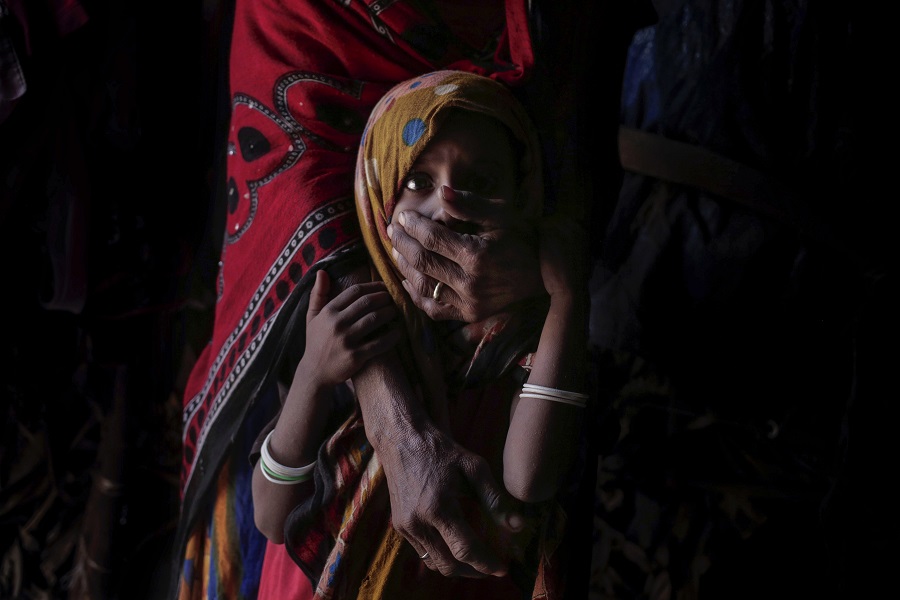NEW YORK — The Associated Press today won a Pulitzer Prize for international reporting based on its compelling coverage of the grinding conflict in Yemen and the ensuing humanitarian crisis, including a series of deep investigative stories, photos and videos chronicling atrocities spawned by the war.


The achievement is the 53rd Pulitzer Prize won by AP.
At great personal risk, correspondent Maggie Michael, photographer Nariman El-Mofty and video journalist Maad al-Zikry exposed torture by factions on all sides of the fighting, secret deals between U.S. allies and al-Qaida militants and widespread corruption that diverted international food aid from starving families, pushing the country to the brink of famine.
The team, whose work was supported by a grant from the Pulitzer Center on Crisis Reporting, told stories that the world heard from no other source.
Addressing AP staffers at the cooperative’s New York headquarters today, Senior Vice President and Executive Editor Sally Buzbee said: “AP’s groundbreaking work in Yemen has drawn the world’s attention to one of the worst tragedies of our time. Yemen is one of the most dangerous places in the world to report. And yet, again and again, this team braved those dangers to tell stories that the world heard from no other source, and with extraordinary detail.”
In the wake of AP’s reporting, authorities ordered the release of at least 80 prisoners from Emirati-controlled black sites exposed by AP, a top rebel leader demanded an investigation on torture at Houthi-run prisons, and the United Nations rushed food to the country’s remote Aslam district. The U.N. also went public with a threat to cut off help to Houthi-controlled areas unless the rebels stopped diverting food aid.
The team’s work was often hazardous, requiring travel through tense militia checkpoints and disputed territory patrolled by attack drones. As the journalists produced hard-hitting stories and returned to Yemen for new reporting, they were forced to take precautions to avoid armed groups angered by their previous stories.
AP President and CEO Gary Pruitt told the gathering: “The team exemplifies the very best in journalism — outstanding talent, of course, but also tenacity, humanity and courage — in telling this horrific story. And let’s not forget, these journalists risked their lives to inform the world of this horrific war.”
The Pulitzer Prize caps a string of awards for the work of Michael, El-Mofty and al-Zikry, including the McGill Medal for Journalistic Courage and the Tom Renner Award from Investigative Reporters & Editors.
The Pulitzer Board also nominated four AP finalists, including two for breaking news photography:
- “Gaza on the Edge,” for breaking news photography: Despite demanding and dangerous conditions, a team of AP photographers documented mass protests near the fence separating Israel from the Gaza Strip, forming a comprehensive portrait of the most recent chapter in a seemingly endless conflict.
- “Ravaged by Wildfire,” for breaking news photography: Photographers Noah Berger, Ringo Chiu and John Locher dodged flames and smoldering cars and buildings to document the massive blazes that ravaged California in what was a historic fire season.
- “Torn Apart: Immigration in the Era of Trump,” for national reporting: A team of AP journalists examined immigration under President Donald Trump. AP was first to report that infants were among the children being forcibly separated from their families at the border and to catalog the facilities where kids were being held and sometimes physically abused.
- “Kept Out,” for explanatory reporting: A collaboration between Reveal from The Center for Investigative Reporting and AP outlined how banks block people of color from home ownership. AP contributed data journalism work and distributed the data to member news organizations for localization.
Contact
Lauren Easton
Director of Media Relations
The Associated Press
212-621-7005
leaston@ap.org



